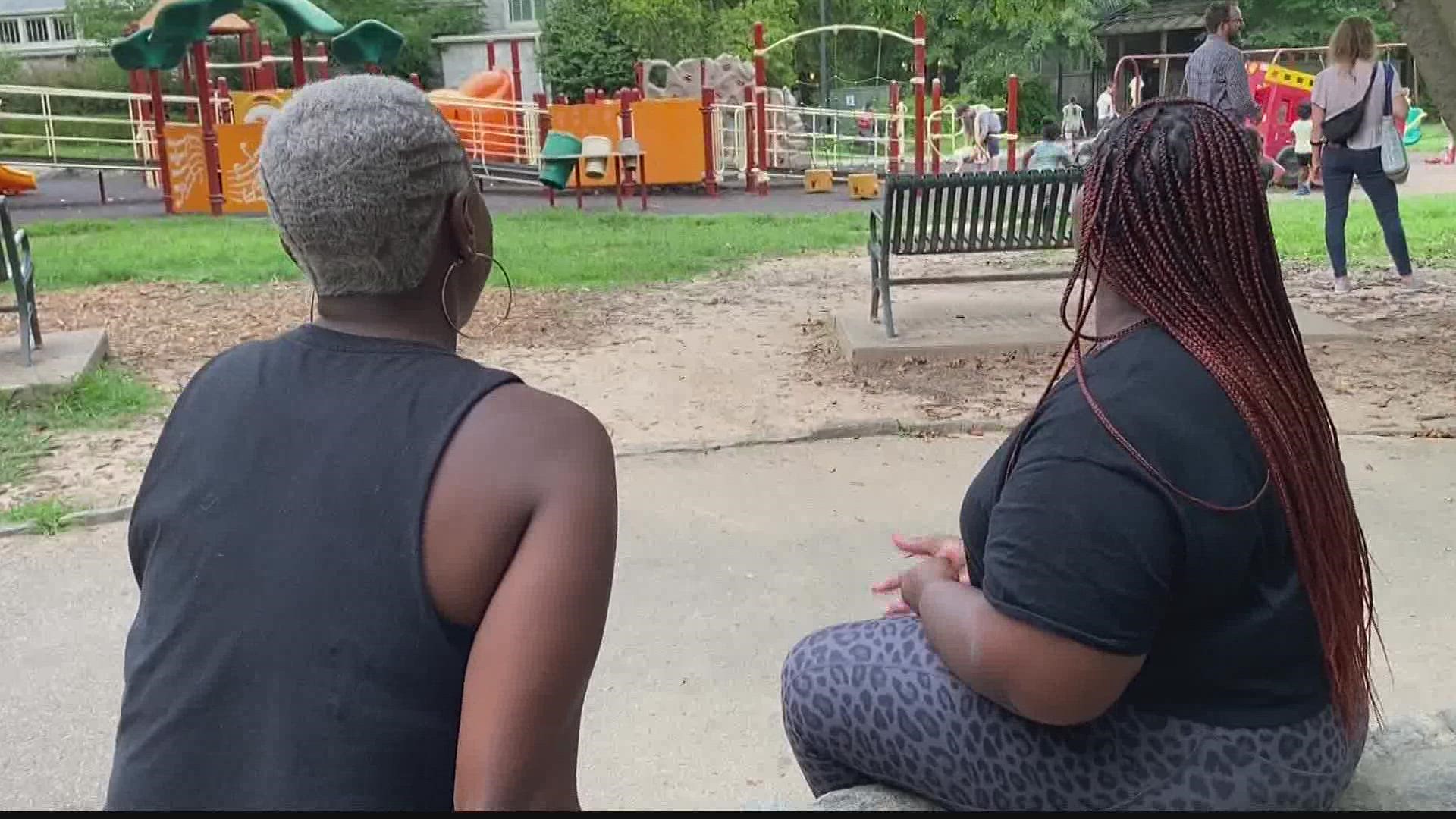ATLANTA — As cases of monkeypox continue to rise across Georgia and the rest of the world, doctors are concerned that more children could become infected.
Children under eight years of age are considered among those at higher risk for serious infection, along with those who are pregnant or immunosuppressed.
As of now, doctors are telling parents to be aware of the risks, but not to worry.
Monday evening, at a playground in Atlanta’s Piedmont Park, parents were watching their children, and talking with each other about monkeypox—but were not concerned.
“Not to say we’re ignorant to the fact that monkeypox is out here, but it hasn’t really been put on our radar,” said Neffiteria Acker. Her focus is learning more about protecting her family and herself from infection, “just how to take preventative measures.”
J. Marie Hightower agreed.
“Because of the demographic that we’ve been told that it’s really affecting, we’re not really worried about it, as far as our children go,” Hightower said. She added that she will reconsider how safe her children are around others if monkeypox becomes more prevalent, especially with her kids in public school, where she can't control who they're around.
There were at least two known pediatric monkeypox cases in the U.S., as of Monday night, out of 3,487 known U.S. cases.
“It’s very possible that cases in children are going to increase,” said Dr. Carlos del Rio, an infectious disease expert with Emory University’s Department of Medicine in Atlanta. “You’ve got to realize in these two cases, there was contact with a person who is at high-risk, who had the infection, and that led to the infection in the children. But you can imagine those children are then going to school or going to day camp or something like that, and that could spread it to other individuals.”
Dr. del Rio added that as long as infected individuals isolate and have no physical contact with others, they will not likely spread it to children or anyone else.
“This is what we're trying to stop, right? We're trying to prevent and to hold this outbreak. We have the tools to hold this outbreak. We're getting more and more vaccine, rolling out vaccine, getting information to people, testing, getting treatments. I think is going to be critical to try to stop this outbreak. And we in Georgia are really working very hard to do that,” he said.
However, Dr. del Rio noted researchers are still investigating the best treatments for children who do get it, adding "kids are considered among one of the most vulnerable populations, together with pregnant women or immunosuppressed individuals.”
As it is, he said, statistically in the U.S., right now, “I’d be more concerned about my kids being shot than my kids getting monkeypox. The reality is, you have to know what the risks are. Gun violence has surpassed automobile accidents, motor vehicle accidents, one of the biggest causes of deaths in children. That’s why, as a parent, I would be more concerned about my kid dying from a gunshot injury.”
The pediatric monkeypox cases, he believes, will continue to be statistically small, “a fluke, an exception, and we need to focus, right now, on really getting vaccines out to the most affected communities, getting information out and hopefully try to stop this outbreak. People need to stay informed, but they also should not panic.”
And it’s not just the risk of transmission among people in the same household coming into direct, skin-to-skin contact with an infected person. “Bed sheets have been implicated in transmission in some cases,” he said, “or towels that have been in contact with lesions, where the virus may still be there and could be transmitted that way.”
Public health doctors are emphasizing how crucial it is that people who develop symptoms, including the onset of a rash, get tested and then, if positive, isolate--have no physical contact with anyone else of any age--until they recover, usually in two to four weeks.

